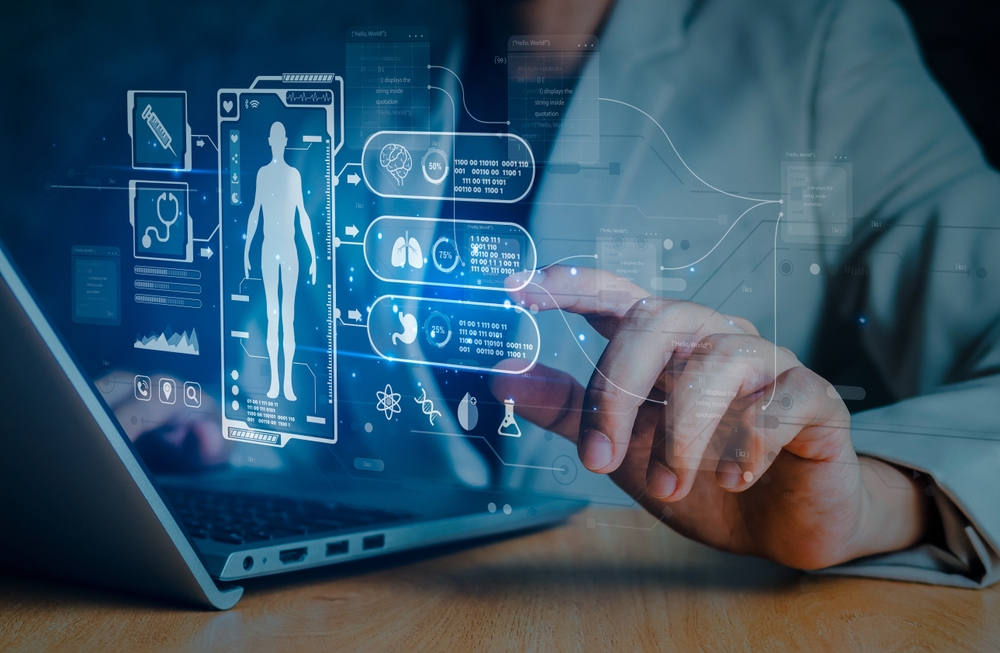Latest Innovations in Tech for Early Disease Detection
The Importance of Early Disease Detection
In the medical field, early disease detection is crucial for improving patient outcomes and reducing treatment costs. By diagnosing diseases in their initial stages, healthcare providers can offer timely interventions that can significantly improve the prognosis for patients. The latest innovations in tech for early disease detection are revolutionizing the way we approach healthcare, making it easier to identify and treat a variety of conditions before they become severe.
Early disease detection is not limited to a single disease or condition; it spans across numerous areas including cancer, heart disease, and infectious diseases. With ongoing research and the integration of technology, the medical community is finding new ways to utilize data and advanced tools to catch diseases early. This progress is powered by a combination of bioinformatics, genetic research, and advancements in imaging technologies.
The implementation of early detection methods often involves the use of AI and machine learning algorithms that can analyze vast datasets quickly and accurately. These technologies are essential in identifying patterns and anomalies that might be indicative of early-stage diseases. As a result, the healthcare industry is witnessing a paradigm shift towards more proactive and preventative care models.
The benefits of early detection are manifold. It not only enhances patient quality of life but also helps to reduce the burden on healthcare systems. By preventing diseases from progressing to critical stages, medical interventions are less invasive and more cost-effective. This shift in approach is not just beneficial for patients but is also sustainable for healthcare providers and insurers.

Key Technologies Driving Early Disease Detection
One of the most exciting developments in early disease detection is the use of wearable technology. Devices such as smartwatches and fitness trackers are now equipped with health monitoring sensors that can detect irregular heart rates, oxygen levels, and other vital signs. These wearables provide continuous health data that can be monitored for signs of potential health issues.
Another significant innovation is the development of liquid biopsies. These minimally invasive tests detect biomarkers in blood that are indicative of specific cancers, providing a less intrusive option compared to traditional biopsies. Liquid biopsies have gained attention for their ability to detect cancer at an early stage, which is critical for successful treatment outcomes.
Artificial intelligence (AI) and machine learning are also playing pivotal roles in early disease detection. These technologies assist in analyzing medical images, such as mammograms and CT scans, with greater precision than traditional methods. AI algorithms can identify subtle changes in images that might be missed by the human eye, leading to earlier and more accurate diagnoses.
Moreover, advancements in genomics are providing insights into genetic predispositions for various diseases. Genetic testing can now predict the likelihood of developing certain conditions, allowing individuals to take preventive measures. This proactive approach is changing the way personalized medicine is practiced, focusing on prevention rather than cure.
Challenges and Ethical Considerations
Despite the promising advancements, early disease detection technologies also face several challenges. One major issue is the accuracy of these technologies. False positives and negatives can lead to unnecessary anxiety or overlooked conditions. Therefore, the validation and regulation of these technologies are crucial to ensure their reliability and effectiveness.
Privacy concerns are also a significant consideration. With the increased use of wearable devices and genetic testing, vast amounts of personal health data are being collected. Ensuring the security of this sensitive information is crucial to maintain patient trust and confidentiality.
Another ethical concern is the potential for discrimination based on genetic information. There is a risk that individuals may face discrimination in employment or insurance based on their predisposition to certain diseases. This has led to calls for legislation to protect individuals from such discrimination.
Moreover, the accessibility of early detection technologies can be a barrier. While these innovations offer promise, they are not always available to all populations, particularly in low-income areas. Bridging this gap is essential to ensure that all individuals have the opportunity to benefit from early disease detection.
Future Directions in Early Disease Detection
The future of early disease detection lies in integrating these technologies into a cohesive, comprehensive healthcare system. Efforts are underway to create platforms that combine data from wearables, genetic tests, and imaging technologies to provide a holistic view of an individual’s health. This integrated approach will enable more personalized and precise healthcare interventions.
Researchers are also exploring the potential of nanotechnology in early disease detection. Nanosensors could be used to detect minute changes in the body at a molecular level, offering even earlier detection of diseases than current technologies allow. This represents a new frontier in medical diagnostics.
Collaboration between technology companies and healthcare providers is essential to drive innovation and increase accessibility. Partnerships can lead to the development of scalable solutions that are both cost-effective and widely available, ensuring that advancements in early detection benefit the widest possible audience.
Ultimately, the goal of these innovations in tech for early disease detection is to shift the healthcare paradigm from reactive to proactive. By focusing on early intervention, the healthcare industry can improve patient outcomes, reduce costs, and enhance the quality of life for millions of people worldwide.
Conclusion
In conclusion, the latest innovations in tech for early disease detection are transforming healthcare by enabling earlier diagnosis and intervention. From wearables to AI and genomics, these technologies are paving the way for a future where diseases are identified at the earliest possible stage, improving patient outcomes and reducing healthcare costs. Despite the challenges, the potential benefits of these innovations are immense, promising a healthier future for all.